 Did you know that incorporating music therapy into the treatment of addiction is beneficial to one’s recovery? It complements other treatment modalities used to help each individual. Music therapy can be active or passive; it can involve listening or singing. At Sierra Tucson, Family Therapist Michael Simpson, MSC, BCC, LAC, leads communal drumming circles. With the right rhythm and a new perspective on regaining harmony, music therapy can help open your mind to a different kind of intervention.
Did you know that incorporating music therapy into the treatment of addiction is beneficial to one’s recovery? It complements other treatment modalities used to help each individual. Music therapy can be active or passive; it can involve listening or singing. At Sierra Tucson, Family Therapist Michael Simpson, MSC, BCC, LAC, leads communal drumming circles. With the right rhythm and a new perspective on regaining harmony, music therapy can help open your mind to a different kind of intervention.
According to the American Music Therapy Association (AMTA), the definition of music therapy is the “clinical and evidence-based use of music interventions to accomplish individualized goals within a therapeutic relationship by a credentialed professional who has completed an approved music therapy program.” Music therapy is also considered a creative approach that helps with expression. Music shares neural circuits with speech. By listening or singing aloud to music, we tap into neural circuits that assist with expression. Frequently recognizing and communicating emotions can often be difficult for people struggling with addiction.
Music therapy can be helpful across many strata of addictions, including substance dependence or process addiction(s). Sierra Tucson alumnus Paul N. shares his insight on the positive effects of music therapy:
“Music serves as a great form of communication and a different way to convey a message at a deeper level than words allow. Music evokes emotions, feelings, and memories, and has a way of transcending or bridging our inner voice to our current realities. In my own workshops and sessions that I facilitate, I use music to foster self-exploration. I compile songs in a specific way that guides an individual or group through a revealing journey and evokes experiences from their subconscious. Putting these experiences into words is sometimes difficult, so I invite them to compile a story, using a set of visuals that represent their music-evoked visions and feelings. Through reflection and meditation, participants can articulate their journey of self-exploration and affirm their self-worth, wisdom, and purpose.”
You don’t need to be a musician or an opera singer to experience the many benefits of this creative art therapy. All you need is a willingness to try something new. There are many advantages and qualities of music therapy, including:
- Shares neural circuits with speech
- Helps us express emotion
- Taps into our memories
- Alleviates pain and anxiety
- Promotes relaxation and wellness
- Brings people together and is social
Certain types of music are rhythmic and predictable. Other types of music are unpredictable and improvisational. It is up to the therapist and the individual to select the type of music that will help the individual achieve his or her goals. Different combinations of music may be employed at different times to promote mental and physical health. At Sierra Tucson, we understand that treating addiction is comprehensive and personal – no one treatment is the same for every resident. Music therapy is simply one approach that works in concert with many other methods for addressing addiction, including psychotherapy, medication, and mindfulness, among others.












